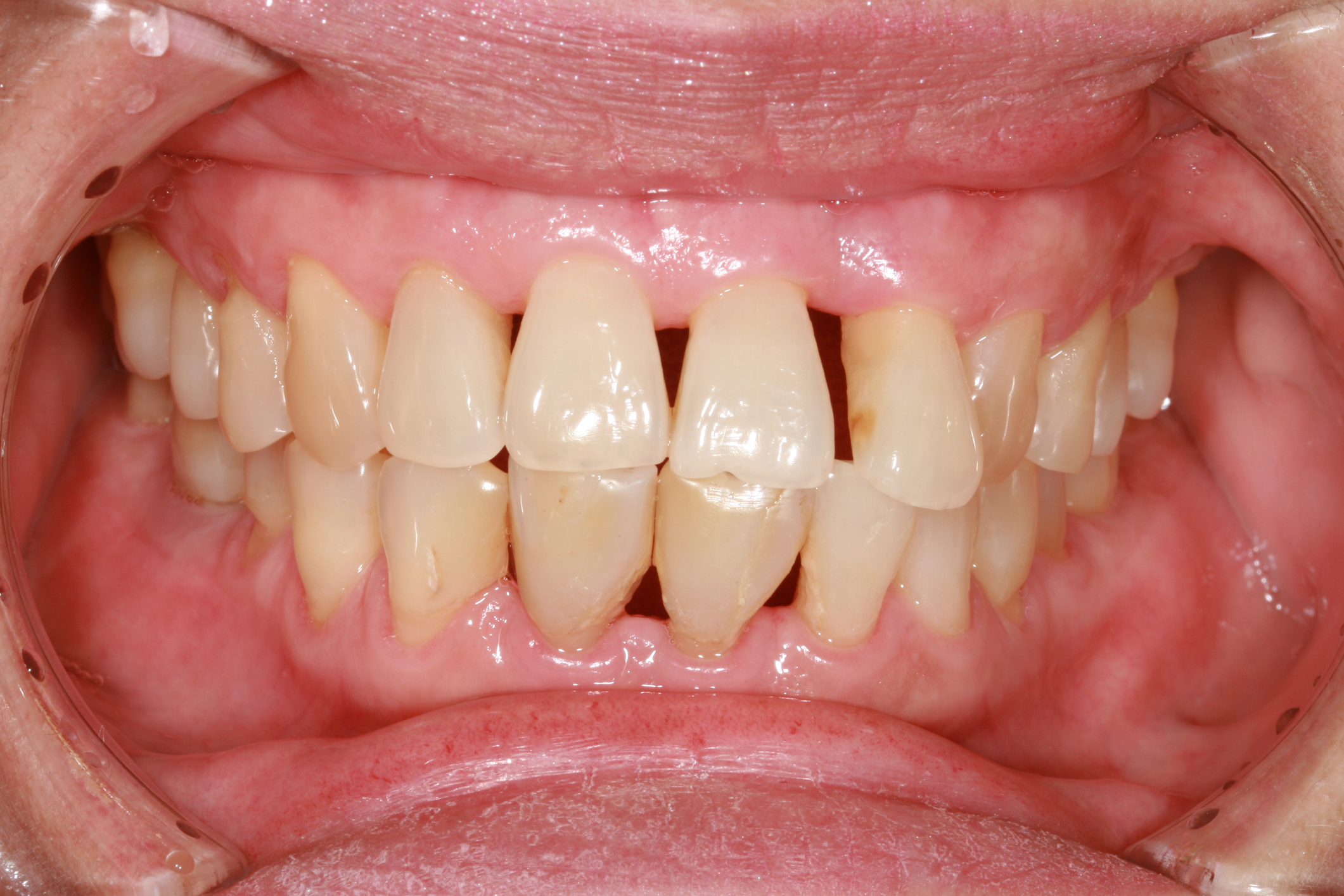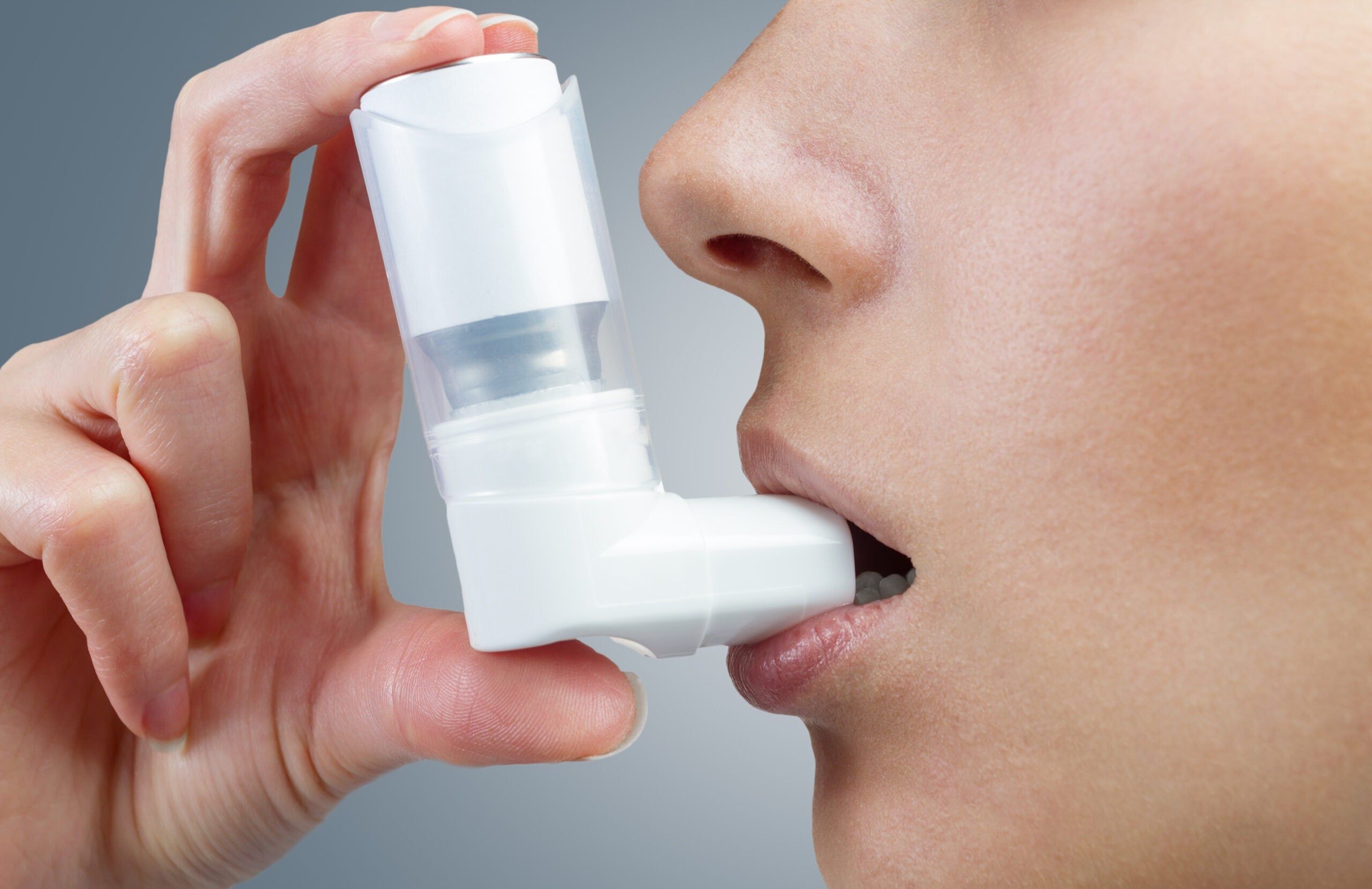-
Can Sports Drinks Rot Your Teeth?

Man drinking sports drink.
A refreshing sports drink might feel like the perfect way to replenish your electrolytes after an intense workout, but have you considered the toll it takes on your oral health? A mounting body of evidence suggests that sports drinks contribute to dental problems, including tooth decay and erosion. Three problematic ingredients found in these beverages include citric acid, sugar, and artificial sweeteners.
The Problems with Citric Acid
Citric acid wreaks havoc on your teeth without your knowledge. As the name suggests, citric acid raises the acidity level in your mouth, compromising the outer layer of your teeth called the enamel. Once the enamel erodes, your teeth become more susceptible to stains and cavities. But that’s not all—citric acid is also known to cause gum inflammation, leading to more serious gum disease if not treated promptly.
The Not-So-Sweet Side of Sugar
Sugar is another common ingredient in sports drinks, which is notoriously linked to dental problems. Unfortunately, sugar feeds the harmful bacteria in your mouth. These bacteria feast on sugar, producing an acidic byproduct that eats away at your enamel. This process leads to cavities and, eventually, rotten teeth.
The Downsides of Artificial Sweeteners
Many sports drink manufacturers claim their products are healthier because they contain artificial sweeteners instead of sugar. While these sweeteners might not directly contribute to tooth decay as sugar does, they can still cause problems. In some people, artificial sweeteners can trigger tooth sensitivities and other dental problems, making them a less-than-ideal choice for good oral health.
Healthier Alternatives to Sports Drinks
Fortunately, quenching your thirst and replenishing your body post-workout doesn’t have to compromise dental health. Consider these viable alternatives:
- Plain water is the best way to hydrate without risking your dental health.
- Coconut water is an excellent natural source of electrolytes, making it a great way to hydrate and refresh without harmful additives.
- Homemade electrolyte drinks are easy to make. Simply mix water with a pinch of salt and a squeeze of lemon for a fast, effective electrolyte drink.
- Iced green tea is packed with antioxidants. Choose the unsweetened variety for a refreshing drink that’s good for your oral health.
- Water sweetened with fruit provides a natural and healthy flavor.
- Carbonated flavored water delivers fizzy satisfaction without added sugar and acid.
- Milk is a surprising source of natural electrolytes. Just avoid flavored or sweetened varieties containing added sugar.
Why Choose Park 56 Dental?
Good dental health requires regular check-ups and cleanings to catch issues early. This is where Park 56 Dental comes in. Our spa-like office caters to a clientele that appreciates personalized, quality dental care. With services ranging from general and cosmetic dentistry to sedation solutions and emergency dental care, we’re prepared to help you smile with confidence. We take pride in treating each patient individually and have been honored with the title of top New York dentist, serving the 10022 zip code since 1997.
Remember, good oral health isn’t just about picking the right drinks—it’s about having the right dental care provider by your side. Contact Park 56 Dental today at (212) 826-2322 for top-notch dental services in NYC.
-
Acid Reflux and Your Teeth

Acid Reflux.
Do you ever get heartburn? Most people do, with about ten percent of Americans suffering daily from the discomfort this condition causes. While heartburn is common, it’s not actually natural, and it’s caused by a disorder called acid reflux or gastro esophageal reflux disease (GERD). And while the most well-known symptom of acid reflux is heartburn, that’s far from the only way this problem affects the body. In fact, chronic acid reflux can be very hard on your teeth. Let’s look at why, and what you can do about it.
First, what is acid reflux? When your digestive system is working the way it’s supposed to, you swallow and your food travels through the esophagus to the stomach. The stomach has acids that digest the food, but there is a muscle that connects the stomach and esophagus, and it closes to keep the food and acid from going back up the esophagus- the wrong way. In people suffering from GERD or acid reflux, this muscle is weak, and it allows the food and stomach acid to travel back up, causing burning in the chest, neck and throat, and a bitter acidic taste.
If you think about the mechanics of acid reflux, you can probably already deduce why this condition would cause problems for your teeth. Your teeth are covered with tooth enamel, which is the strongest substance in the body and protects the teeth from things like bacteria, chemicals, and extreme temperatures. However, over time, this enamel and begin to erode. Stomach acid hastens that erosion, in effect dissolving the enamel and leaving your teeth vulnerable to decay. In fact, in some cases, stomach acid can dramatically decrease the size of your teeth.
How do you know if acid reflux is damaging your teeth? You might notice that your teeth are more sensitive, especially to hot, cold, or sweet foods and beverages. Your teeth also might chip, seem thinner or smaller, or have sharp edges. You may experience pain and irritation in your mouth, and your teeth may become discolored or dark.
If you have acid reflux, what can you do to protect your teeth from these problems?
- Start by controlling your acid reflux. Talk to your primary care physician or a gastroenterologist about lifestyle changes you may need to make. Things like removing trigger foods from your diet, quitting smoking, losing weight, and sleeping with your head raised may all be recommended. You may also choose to use antacids to control your symptoms, but do this sparingly, as this type of medication can cause dental problems.
- Be careful with your teeth. Drink through a straw if you’re drinking anything acidic, like soda, coffee, or juice. Drink water with your meals, and drink water between meals, to continually rinse your mouth. Brush with fluoride toothpaste, but avoid brushing for 30 minutes to an hour after eating, so that you don’t brush your enamel when it’s softened. Eat a piece of cheese or drink some milk after your meals, to neutralize the acid.
- See your dentist regularly. Your dentist can alert you to signs of tooth erosion, and can also offer a variety of treatments to help restore your enamel and offset the damage of acid reflux.
If you’re looking for a dentist in New York, why not choose the dentist voted best in the city? At Park 56 Dental Group, we offer pediatric, prosthodontics, endodontics, oral surgery, Invisalign®, emergency, and sedation dentistry, all at the highest level of treatment. We serve the Midtown, Central Park, Upper East Side, Park Avenue, and all surrounding Manhattan and New York areas, with a patient-centered practice that has hours to fit your schedule. Schedule your complimentary consultation today by contacting us online or calling us at (212) 826-2322.
-
Why Your Gum Line Recedes

Gum recession.
How is your gum health? About half of all people over 30 suffer from periodontal disease, and this is the leading cause of gum recession. Gum recession is a problem, because when your gums recede too far, they can allow your teeth to fall out! Further, receding gums create pockets between the teeth and gums, and this can allow bacteria to grow and cause infections. In this way, even if your gum recession is not caused by periodontal disease, it can create an ideal environment for periodontal disease to progress. Once gums have receded, they don’t grow back, but there are some strategies you can employ to slow the recession. First, you need to know what is causing your gum line to recede.
- As mentioned, periodontal disease is a major cause of receding gums. The bacterial gum infections of periodontal disease can destroy not only gum tissue, but also the bone that holds the teeth in place. Catching periodontal disease in the early stage, called gingivitis, when the gums are simply inflamed, can help forestall its progression.
- It could be your genes. Sometimes, genetics just don’t work in your favor when it comes to your gums. About 30 percent of people have receding gums, leading to periodontal disease, no matter how well they care for their teeth.
- You might not be taking good care of your teeth. Poor oral hygiene can lead to tartar build-up, and when this happens, it can cause your gums to recede.
- On the other hand, you might be brushing too enthusiastically. Aggressive brushing can wear away your enamel and damage your gum tissue.
- Your teeth may be crooked. Believe it or not, misaligned teeth can wear on your gums. Teeth that don’t come together properly put too much force on the gums, causing them to recede.
- It might be hormones. Hormonal fluctuations, like the ones experienced during puberty, pregnancy, or menopause, can cause your gums to recede.
- Mouth trauma can damage your gums. If you get punched in the mouth or fall on your face, your teeth can be knocked loose, and your gums can sustain damage that causes recession.
- Your orthodontia may be the issue. It makes sense that using constant force to reposition your teeth could cause your gums to become inflamed and recede.
- If you grind your teeth, your gums might recede. In fact, receding gums may be your first warning sign that you grind your teeth at night.
- Tobacco use can lead to receding gums. Smoking and chewing tobacco are bad for your oral health in such a variety of ways that if you use tobacco, you really need to stop.
You might notice your gums receding, or you might notice some other warning signs. Your teeth may become sensitive to heat, cold, and sweets, or they may be sensitive when you’re brushing, flossing, or getting dental cleanings. You may also experience pain or discomfort near the gum line. Without treatment, gum recession could cause your teeth to feel loose. Fortunately, while receding gums won’t grow back, your dentist can help you slow the recession, as well as offering non-surgical and surgical treatments to improve the condition.
When you’re looking for a dentist to help with your teeth and gums, trust the dentist voted best in New York. At Park 56 Dental Group, we offer pediatric, prosthodontics, endodontics, oral surgery, Invisalign®, emergency, and sedation dentistry, all at the highest level of treatment. We serve the Midtown, Central Park, Upper East Side, Park Avenue, and all surrounding Manhattan and New York areas, with a patient-centered practice that has hours to fit your schedule. Schedule your complimentary consultation today by contacting us online or calling us at (212) 826-2322.
-
Is Coffee Ruining Your Teeth?

Fresh cup of coffee.
If you’re like most Americans, the day doesn’t quite start until you’ve had your morning coffee. Coffee is a delicious beverage that boosts your energy and may even be good for your heart health, but it can be hard on your smile, leaving your chompers less than pearly white. Beyond the stains it leaves behind, is coffee actually harmful? Could your morning cup of joe be ruining your teeth?
The answer is not as straightforward as you might think. If you’re a coffee drinker, you already know that it is a substance that stains. It will stain your favorite shirt, the upholstery in your car, your best tablecloth, and, yes, your teeth. It stains because it contains plant-based compounds called tannins that leave behind discoloration. The acidity in coffee helps with this staining because acid softens tooth enamel, making it easier for stains to penetrate the teeth. Because the stains seep through the enamel, though, coffee stains are difficult to remove with tooth brushing.
What’s more, as you get older, your tooth enamel begins to change, becoming more vulnerable and susceptible to staining. So, if you have a five cup a day coffee habit, you’re likely to have some noticeable stains after you’ve sustained it for several years. But beyond the yellowing teeth, does coffee do any damage?
There is, of course, the matter of coffee breath. Along with the acids, coffee introduces bacteria into your mouth, and it sticks to your tongue, causing halitosis. Fortunately, this is easily remedied by brushing your teeth after you drink coffee. Then, too, coffee is not alone in bringing bacteria into the environment of your mouth: any drink that isn’t water will do that. Fortunately, your saliva helps counteract the bacteria and allow your enamel to repair itself, but it’s important to brush and floss regularly to prevent cavities. Be aware that the sugar (or syrup) that goes into your coffee is much more damaging to your teeth than the coffee itself.
How can you continue to enjoy your coffee without staining your smile? You can’t, completely, but there are some things you can do to minimize the issue.
- Limit your coffee. Don’t drink coffee all day long, instead sticking to one or two cups of coffee at one time of day.
- Brush your teeth. Brushing with fluoride toothpaste after every cup is best because brushing removes bacteria and fluoride strengthens enamel. Bonus: you’ll lose the coffee breath. It is important to note, however, that you should wait about 30 minutes after your coffee to brush and floss, because immediately after you drink it your enamel will be soft enough to sustain damage from your toothbrush.
- Drink your coffee through a straw. When you use a straw, you can keep most of the coffee away from your teeth, which limits staining.
- Wash your coffee down with water. Water is always a good choice, whether you’re drinking coffee, eating food, or drinking alcoholic beverages. Why? Because water helps to keep the saliva flowing and rinses debris and bacteria away from your mouth.
- See your dentist regularly. Semi-annual cleanings can make a world of difference in the look of your teeth. Beyond just cleaning the teeth, they polish the enamel so that it can do a better job protecting your teeth from stains. Your dentist can also offer teeth whitening treatments to remove discoloration that has already appeared on your teeth.
If you are looking for a dentist to do those semi-annual cleanings and handle all your other dental needs, choose the dentist voted best in New York. At Park 56 Dental Group, we offer pediatric, prosthodontics, endodontics, oral surgery, Invisalign®, emergency, and sedation dentistry, all at the highest level of treatment. We serve the Midtown, Central Park, Upper East Side, Park Avenue, and all surrounding Manhattan and New York areas, with a patient-centered practice that has hours to fit your schedule. Schedule your complimentary consultation today by contacting us online or calling us at (212) 826-2322.
-
Reasons Why your Teeth are Temperature Sensitive

Do you find that eating ice cream or drinking hot coffee causes pain in your teeth? You may have sensitive teeth. It’s a common condition, affecting about 45 million people in the United States, but it can be painful and difficult. What causes teeth to be temperature sensitive? More importantly, what can be done about it?
Your dentist can help you determine the underlying cause of the sensitivity, though the reason teeth become sensitive is typically always the same. Teeth are made of three layers, the enamel, the dentin, and the pulp. The enamel is the hard, outer layer of the teeth, and it protects the softer, inner layers. Below the enamel is the dentin, which is made up of microscopic tubes leading to the innermost layer- the pulp. Within that pulp is the nerve system of the teeth, and dental sensitivity happens when the dentin layers or the nerves are stimulated by something hot or cold. The cause of this stimulation varies.
Cold sensitivity can be caused by tooth decay or gum disease. It can also be the result of brushing too aggressively, using abrasive toothpaste, or using a hard-bristled toothbrush, which can all wear away at the enamel. Tooth grinding or clenching can chip the teeth or damage tooth enamel, which can also cause sensitivity to cold. Receding gums and cracks in a tooth can leave that tooth vulnerable to the cold. If your teeth are sensitive to heat, though, it could have a different cause. Dental treatments like teeth whitening can lead to heat sensitivity, and so can teeth cleanings, root planning, and dental crown or filling placement. If you consume a diet that’s high in acids, found in foods like coffee, tomato sauce, and wine, it can lead to enamel loss and heat sensitivity. People struggling with gum disease often have sensitive teeth, because 80 percent of tooth sensitivity begins at the gum line.
If your teeth are highly sensitive and react to both heat and cold, the best thing to do is see a dentist to determine the cause and the best course of treatment. If the sensitivity is minor, though, you may be able to manage it at home. You can reduce the discomfort of mild temperature sensitivity by making a few changes.
- Instead of letting hot and cold liquids touch your teeth, use a straw.
- Reduce your consumption of acidic foods.
- Change to a softer bristled brush and be careful not to brush too hard.
- Switch to a toothpaste for sensitive teeth.
- Ask your dentist which mouthwash to use; some mouthwashes can irritate your dentin and pulp layers.
- Wear a mouthguard to prevent teeth grinding at night.
There are also treatments that dentists offer to improve dental sensitivity. If you find that your sensitivity is not improving after a few days, talk to your dentist about the best treatment for you. It could be as simple as fluoride therapy, or it could be a more involved procedure like a root canal or a gum graft. Dental restorations like a filling, inlay, onlay or crown can also protect damaged teeth and help with sensitivity. Nervous about seeing the dentist? We provide sedation dentistry for your comfort.
If you are looking for a dentist to help with tooth sensitivity, it makes sense to choose the practice voted Best in New York. At Park 56 Dental Group, we offer pediatric, prosthodontics, endodontics, oral surgery, Invisalign®, emergency, and sedation dentistry, all at the highest level of treatment. We serve the Midtown, Central Park, Upper East Side, Park Avenue, and all surrounding Manhattan and New York areas, with a patient-centered practice that has hours to fit your schedule. Schedule your complimentary consultation today by contacting us online or calling us at (212) 826-2322.
-
What to Eat When You Have a Toothache

What to Eat When You Have a Toothache
A toothache turns mealtime into a miserable experience. The throbbing pain and sensitivity can make chewing next to impossible. But you can’t simply stop eating just because your mouth is giving you grief. Here’s what to eat, what to avoid, and when it’s time to visit a dentist.
Continue reading “What to Eat When You Have a Toothache”
-
Can a toothache cause problems to the rest of your body?

We know that the health of your mouth has an impact on your overall health, but does pain in your mouth cause problems for your body? When you have a toothache, it can certainly feel like your whole body is involved! Your head may throb, your heart may race, and you may feel nauseous or just generally sick. Is it all in your imagination?
In a word, no. A common cause of a toothache is tooth infection, and a tooth infection can definitely affect your whole body. Tooth infections happen when bacteria enter the tooth because of a chip or a cavity, and infections can lead to an abscess at the root of the tooth. An abscess causes constant, throbbing pain that can radiate to the jawbone, neck, or ear, along with bad breath, a bad taste in the mouth, and increased sensitivity to hot and cold foods.
Left untreated, the bacteria that caused your tooth infection can begin to spread throughout your body. If it spreads to the blood, it can cause sepsis, with symptoms that include an extremely high fever, respiratory trouble, and mental confusion. Your blood pressure may drop, causing you to go into septic shock, and in the worst case scenario, you could die. Another life-threatening condition that can result from a tooth infection is meningitis, which occurs because of inflammation near the brain and spinal cord. Ludwig’s Angina can also be caused by a tooth infection, bringing symptoms of pain and tenderness under the tongue, trouble swallowing, breathing, and speaking, swelling and redness of the neck, neck and ear pain, drooling, fever, chills, fatigue, confusion, and weakness. To avoid any of these complications and illnesses, it’s important to seek prompt medical treatment for a tooth infection. To prevent tooth infections, practice good oral hygiene, eat a nutrient-dense diet, and see your dentist regularly.
You don’t necessarily have to have a tooth infection to have your tooth pain affect other parts of your body. Because of a shared nerve, tooth pain can cause head pain. If you grind your teeth, it can cause muscle stress that results in both a toothache and a headache, and these can also both be caused by a sinus infection or TMJ (temporomandibular joint dysfunction). If your tooth hurts due to a cavity, crack, or impaction, you may get a migraine. It is thought that the connection between tooth pain and migraines has to do with a cranial nerve called the trigeminal nerve, which provides feeling to the face, including the mouth. Pain from a toothache can irritate this nerve and trigger a migraine.
If you have a toothache, don’t put off seeing an experienced dentist, who can determine the source of your pain and prevent it from affecting the rest of your body. At Park 56 Dental Group, we offer pediatric, prosthodontics, endodontics, oral surgery, Invisalign®, emergency, and sedation dentistry, all at the highest level of treatment. We serve the Midtown, Central Park, Upper East Side, Park Avenue, and all surrounding Manhattan and New York areas, with a patient-centered practice that has hours to fit your schedule. Schedule your complimentary consultation today by contacting us online or calling us at (212) 826-2322.
-
The Relationship Between Vitamin D and Your Teeth

Do you know that your teeth require all types of nutrients to stay healthy? While regular brushing, flossing, and dental checkups are instrumental in ensuring healthy teeth and gums, there’s one nutrient that stands out–Vitamin D. This essential vitamin plays a significant role in promoting strong bones and teeth by enhancing calcium absorption in the body. In this post, we’ll explore the relationship between Vitamin D and your teeth and how you can ensure your body gets enough of this nutrient for maximum oral health.
Vitamin D and Your Dental Health
In addition to its role in promoting bone health, Vitamin D can help strengthen your teeth to fight off decay and gum disease. This vitamin boosts the body’s capacity to absorb calcium, a mineral that fortifies the teeth by keeping the enamel strong and protecting the roots from damage. Calcium aids in the remineralization process of the teeth, which reverses the damage caused by harmful bacteria and acid in the mouth.
Good Sources of Vitamin D
A doctor can test your vitamin D levels to determine if you need to increase your intake of the nutrient. The best natural source of Vitamin D is sunlight, so getting outdoors and soaking up some sunlight can help you meet daily needs. Salmon, tuna, egg yolks, and fortified foods such as cereals and milk are also excellent sources of Vitamin D. A supplement may also be necessary if you’re not getting enough through food and sunlight.
Vitamin D and Gum Disease
Gum disease is a common dental issue that affects millions of Americans. Research has shown that Vitamin D intake could play a role in reducing the risk of gum disease. People with lower Vitamin D levels often have a higher risk of gum disease, and Vitamin D supplements have a positive impact on gum health by reducing inflammation in the gums and improving immune function.
Vitamin D and Tooth Decay
Tooth decay is a common dental problem, especially when there’s a lack of calcium in the body. The remineralization process helps replace lost minerals on the enamel of the teeth to prevent decay. This process is supported by the right amount of Vitamin D in the body. Vitamin D helps the body absorb calcium, which is vital in preventing and reversing tooth decay.
The Importance of Consulting with a Dental Professional
While Vitamin D plays a vital role in supporting dental health, it’s essential to consult with a dental professional to determine if you’re getting enough. A professional can perform a simple blood test to determine your Vitamin D levels and advise on adjustments to your diet or supplements to ensure your body gets enough Vitamin D for maximum dental health.
Park 56 Dental in New York Supports Your Dental Health Goals
Vitamin D plays a significant role in maintaining optimal dental health. It supports the absorption of calcium, which is essential in preventing tooth decay and gum disease. It’s imperative to get enough Vitamin D through food, sunlight, or supplements after consulting with a dental professional. At Park 56 Dental in New York, we recognize the importance of optimal dental health, and we are dedicated to providing our customers with professional dental services, education, and support. Contact us today to schedule an appointment and learn more about how to keep your teeth healthy and strong.
-
The Connection Between Asthma and Oral Health

Asthma is a chronic respiratory condition that affects millions of people around the world. It is a condition that causes inflammation and narrowing of the airways, leading to difficulty breathing. It is well known that asthma triggers can come from a variety of sources, such as pollen, pollution, and other environmental factors. However, did you know that oral health can also play a significant role in asthma management? In this blog post, we will explore the connection between asthma and oral health.
Asthma and Gum Disease
Studies show that people with asthma are more likely to develop gum disease than those without asthma. Gum disease is an infection that affects the tissues and bones that support the teeth, and it can lead to tooth loss if left untreated. This is because the inflammation in the airways caused by asthma can also affect the gums. Furthermore, some of the medications used to treat asthma can have side effects that increase the risk of gum disease.
Asthma and Dry Mouth
Breathing through the mouth is a common symptom of asthma, especially during an attack. However, this can lead to dry mouth, which is a condition that reduces the amount of saliva in the mouth. Saliva is essential for a healthy mouth because it helps to wash away food particles and neutralize the acids that cause tooth decay. When there is not enough saliva, the risk of tooth decay, gum disease, and other oral health issues increases.
Asthma and Oral Thrush
Oral thrush is a fungal infection that can affect the mouth and throat. People with asthma are at a higher risk of developing oral thrush because the medications used to treat asthma can weaken the immune system. Furthermore, the inhalers used to deliver medication can leave residue in the mouth, providing a breeding ground for yeast and bacteria.
Asthma and Teeth Grinding
Teeth grinding, or bruxism, is a condition that causes the grinding, clenching, or gnashing of teeth. People with asthma may be more likely to grind their teeth because asthma attacks can cause tension and stress, which can translate into clenching and grinding during sleep. Teeth grinding can lead to a host of oral health issues, such as tooth sensitivity, cracked teeth, and jaw pain.
Asthma and Oral Care
Proper oral care is essential for people with asthma because it can help to prevent oral health issues and reduce the risk of respiratory infections. This includes brushing twice a day with fluoride toothpaste, flossing daily, and using an antimicrobial mouthwash. Additionally, people with asthma should rinse their mouth with water after using their inhaler to reduce the risk of dry mouth and oral thrush.
Contact Park 56 Dental in New York Today for More Tips!
Asthma and oral health are closely linked. People with asthma are at a higher risk of developing gum disease, dry mouth, oral thrush, and teeth grinding. However, by practicing proper oral hygiene and working closely with your dentist, you can reduce the risk of these issues and improve your overall health. At Park 56 Dental, we are dedicated to helping our patients maintain healthy mouths and bodies. If you have asthma or any other respiratory condition, please let us know so that we can provide you with the best possible care.
-
Should You Extract Your Tooth or Try to Preserve it?

Tooth pain can be one of the most debilitating types of pain that a person can experience. It makes it hard to eat, sleep, and function normally. In some cases, tooth extraction may seem like the easiest route, but is it always the best option? At Park 56 Dental, we believe in preserving teeth whenever possible. In this blog post, we will explore the benefits and drawbacks of tooth extraction versus tooth preservation methods to help you make an informed decision about your oral health.
The Downsides of Tooth Extraction
While tooth extraction may seem like an easy route to take, it has a host of downsides. One of these is cost of dental implants or dentures, both of which are common interventions following tooth extraction. Another downside is that tooth extraction can lead to bone loss and cause facial shape changes over time. Additionally, tooth extraction can be an uncomfortable procedure, and patients are often left with gaps in their smile which can affect their self-esteem.
The Benefits of Tooth Preservation
Tooth preservation, on the other hand, has a host of benefits. One advantage of preserving teeth is that it allows for an essentially normal bite and means that the patient can eat a larger variety of foods. This, in turn, can improve quality of life and overall health. Another advantage of tooth preservation is that it keeps the underlying bone healthy, allowing the facial structure to maintain its shape over time.
Options for Tooth Preservation
If extraction is not the right route for your dental needs, you might be thinking, what are my options? There are a handful of options for preserving a tooth. One of the most common methods is root canal treatment, which involves removing the decayed tissue from the inside of the tooth, filling it with a material that replaces the decay, and then sealing it up. Another option for tooth preservation is crowns, which are cap-like structures that go over teeth that have lost a large amount of their original structure due to decay or injury. Dental veneers are a similar therapy, but they are restricted to teeth that have only spent small amounts of enamel.
Determining Whether to Extract or Preserve
It can be challenging to determine whether to extract a tooth or to preserve it. Ultimately, this decision must be made in consultation with a dental professional who will be able to evaluate your unique situation and guide you on the best course of action. If a tooth is too damaged to be restored with other options, extraction may be the best solution. However, if the tooth can be preserved and maintained with therapies such as root canal treatment, a crown or a veneer, it is often better to do so. It is essential to work closely with your dentist to ensure the best long-term outcome for your oral health.
Park 56 Dental in New York Is Here to Help!
Tooth extraction is often regarded as a quick fix for dental issues, but it can have significant long-term drawbacks. Tooth preservation is more of an investment, but the rewards are considerable. By keeping a tooth, you retain the ability to chew and consume various foods, maintain an accurate bite, and avoid self-esteem problems caused by missing teeth. Overall, the decision to extract a tooth or preserve it is best left to dental professionals who can evaluate your individual situation and make the best decisions for your dental health. At Park 56 Dental in New York, NY, our team of dental experts can help you determine the best course of action for your needs. Feel free to book an appointment with us today to learn more!
RECENT POSTS
categories
- Uncategorized
- Cosmetic Dentistry
- Veneers
- Healthier Teeth
- Teeth Whitening
- Dental Health
- Video
- Dental Emergencies
- Invisalign
- Dental Implants
- Root Canal
- Sedation Dentistry
- Infographic
- Dental Crowns and Bridges
- Dental Anxiety
- Gum Disease
- COVID-19
- Bad Breath
- New York Dentist
- Cut out sugar
- General Dentistry
- Oral Health
- Oral Cancer
- Dry Mouth
- Gum Health
- Toothache
- Dental Sealants
- Cavities



